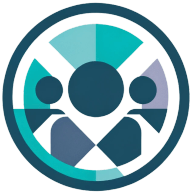Best Practices for Training Teams to Effectively Use CRM
In today's fast-paced business environment, mastering CRM systems can be the deciding factor between success and failure. This Q&A style blog post uncovers seven essential practices for training teams effectively, starting with a focus on hands-on learning and culminating in the importance of setting clear KPIs and tracking progress. Each insight is designed to maximize productivity and engagement. Prepare to discover strategies that can transform CRM training sessions.
- Focus on Hands-On Learning
- Tailor Training to Team Roles
- Integrate CRM into Daily Workflows
- Gamify Training for Engagement
- Use Bite-Sized Training Modules
- Apply Real-Life Scenarios
- Set Clear KPIs and Track Progress
Focus on Hands-On Learning
Training our team to effectively use our CRM system has been a priority since it plays such a critical role in managing customer relationships and optimizing operations at our North Carolina facilities. Our approach revolves around hands-on, practical learning and ongoing support.
We start with an interactive onboarding session for new hires. Instead of overwhelming them with every feature at once, we focus on the core functionalities they'll use daily, like tracking leads, managing tenant communications, and updating unit availability. We provide real-world scenarios, such as responding to a customer inquiry or scheduling a follow-up, so they can immediately see how the CRM fits into their work.
After the initial training, we use a shadowing approach where new team members work alongside experienced users to reinforce what they've learned. We also create cheat sheets and quick-reference guides for common tasks, which have been helpful for building confidence in using the system.
What's made our approach effective is the follow-up. We hold monthly check-ins to address any questions, share tips, and introduce advanced features as the team gets more comfortable. This ongoing support ensures the CRM isn't just another tool but an integral part of how we deliver great service and manage our business efficiently. It's a system that evolves with the team, and that keeps everyone engaged and aligned.

Tailor Training to Team Roles
My best practice for training the team to effectively use a CRM system involves a structured, hands-on approach that combines initial onboarding, ongoing support, and continuous reinforcement. Here’s the approach I take:
Tailored Onboarding Training: I start by assessing the team’s current CRM knowledge and tailoring training to match their roles. This ensures they understand not just the system’s features but also how those features apply to their daily tasks.
Hands-On Practice: Training sessions are interactive and include real-life scenarios, so the team can practice entering, updating, and retrieving data in the CRM in ways they would during their normal workflow.
Documentation and Resources: I create clear, easy-to-follow guides, videos, and cheat sheets for team members to reference after the training.
Mentorship and Support: I designate a point-person or CRM “champion” for the team to answer questions and troubleshoot issues in real time after the initial training.
Continuous Reinforcement: Finally, I conduct periodic check-ins, refresher sessions, and advanced workshops as the team gains more experience with the system or as the CRM evolves.
Integrate CRM into Daily Workflows
Integrating CRM training into daily workflows can significantly enhance learning and adaptation because it allows team members to apply new skills in real-time. This method reduces the intimidation factor often associated with new systems and fosters continuous learning. When employees see how CRM benefits their daily tasks, they are more likely to engage with it enthusiastically.
Additionally, it can spot potential issues early and address them promptly, ensuring a smoother transition. Make it a priority to incorporate CRM practices into everyday activities for seamless training.
Gamify Training for Engagement
Gamifying the learning process with rewards and recognition can make CRM training more enjoyable and engaging for the team. By setting up challenges and providing incentives for completing training milestones, employees are likely to feel more motivated to participate. This approach taps into the competitive spirit and can lead to higher retention rates of CRM systems.
Recognizing achievements also reinforces positive behavior and encourages team members to continue improving. Implement gamification strategies to enhance motivation and participation in CRM training.
Use Bite-Sized Training Modules
Providing bite-sized, role-specific training modules ensures that learning is relevant and manageable for all team members. Breaking down complex CRM systems into smaller, focused segments helps individuals understand and retain information better. Tailoring the training to specific roles within the organization means that employees learn only what is necessary for their tasks, which can prevent overwhelm and burnout.
This approach increases efficiency and supports a more targeted skill development. Consider adopting bite-sized and role-specific modules to improve training outcomes.
Apply Real-Life Scenarios
Using real-life scenarios for practical application helps employees see the direct relevance of CRM systems to their work. This method allows them to practice and problem-solve in a controlled environment, bridging the gap between theory and practice. Real-life scenarios make the training more relatable and easier to understand.
They also encourage critical thinking and adaptability, which are essential skills for effective CRM use. Start incorporating real-life scenarios in training sessions to enhance practical learning.
Set Clear KPIs and Track Progress
Establishing clear KPIs and tracking progress regularly ensures that the effectiveness of CRM training can be measured and improved over time. Clear metrics provide a benchmark for success and identify areas where additional training may be needed. Regular tracking helps to maintain momentum and keeps the team accountable for their learning journey.
This approach also allows for timely feedback and adjustments to the training program. Make it a goal to set clear KPIs and perform regular progress checks to maximize training effectiveness.

